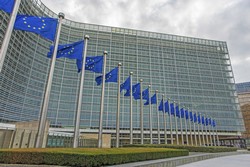New insights to help Europe manage its external relations effectively
In an era of a more volatile economy in Europe and increasing Euroscepticism, there is a need to strengthen and unite European external policy more than ever before. While the Lisbon Treaty has solidified the EU’s European Neighbourhood Policy (ENP) and Development Aid, the new institutional setup has impacted delegation patterns amongst actors in framing the EU’s external policies and affected Member States in their external relations. How Europe deals with issues like human rights, the rule of law, democratisation and trade is pivotal to the future success of the bloc. Against this backdrop, the EU-funded DELEXPOL (Evaluating the post-Lisbon effects of delegation in the EU external relations) project recently investigated this change, offering important insight into how EU external relations can be streamlined. ‘The Lisbon Treaty without any doubt has been a significant milestone in making the EU global role more prominent,’ says project partner Associate Professor Ilze Rūse from the Riga Graduate School of Law in Riga, Latvia. Challenges of framing EU external policy The challenge however lies in that the framing of the EU’s external policies has become a process where the actors have more difficulty in agreeing amongst themselves, given the divergence of their positions in many cases. ‘The effect of this complexity is often seen in lowest common denominator agreements, in other words where procedural complexity contributes to less ambitious policy output,’ reveals Rūse. Nonetheless, Member States see the delegation of the European External Action Service (EEAS) as a welcome initiative for enhancing credibility and gaining policy-relevant expertise. The new setup also increased the ‘control’ mechanisms of Member States that saw the EEAS as an ‘agent’ for implementing policies decided by individual foreign ministers rather than as the new ‘EU’s Foreign Ministry’. New research theory yields enhanced results Applying a new approach to its empirical research called the principal-agent theory, Prof. Rūse and her team found that Member States use every opportunity to control the EEAS from gaining too much autonomy in framing the EU’s external policies. ‘Member States used different “checks” to avoid the EEAS “slipping away” from their preferred positions and tend to hold it accountable to its mandate,’ she explains. These checks include oversight, administrative procedures, institutional checks and legislative adjustments. Despite the level of control that Member States would like to exercise, DELEXPOL found that they don’t necessarily want to keep full control in framing 28 different policies regarding the EU’s external action. Moreover, because of the institutional complexity created by the Lisbon Treaty, all actors need to cooperate even more closely and wisely in order not to lose the efficiency of the EU’s external action. Insight from Latvia supports young Member States The project has also contributed to creating the Advanced Programme for the ENP countries, central Asia and western Balkans at Riga Graduate School of Law. The institution has been able to transfer knowledge and expertise to stakeholders in Member States where reforms are still very much needed. With more Member States understanding the relevant complexities and mechanisms in navigating and managing EU external policy and action, a stronger Europe is bound to emerge on the world stage.



